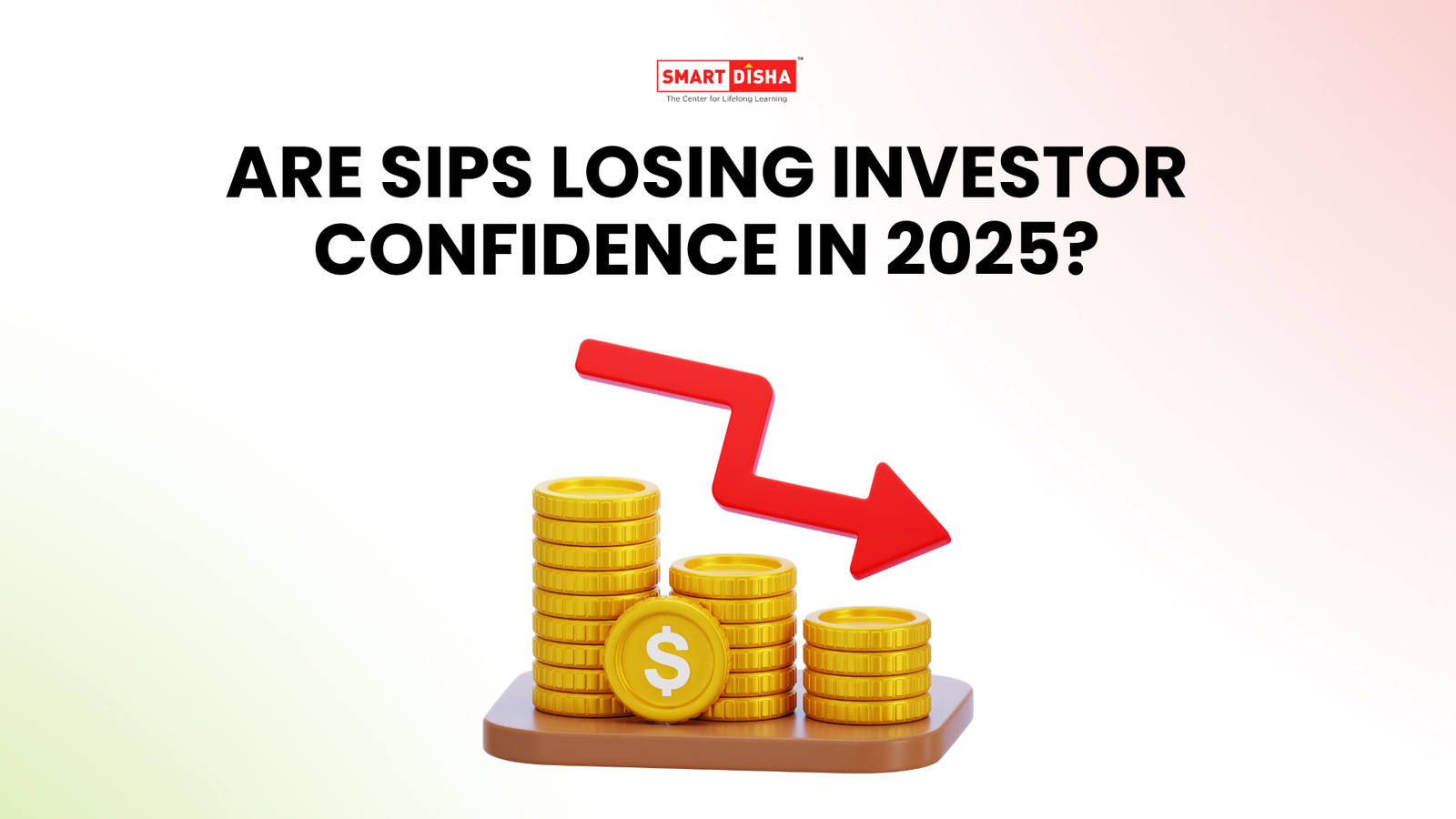Systematic Investment Plans, or SIPs, have long been regarded as one of the most disciplined and reliable ways to create wealth through mutual funds. The promise was simple: invest small amounts regularly, stay consistent, and let compounding work over decades. This approach helped investors navigate market volatility while building long term financial security. However, a new pattern is emerging in 2025. SIP Quitting in 2025 is becoming a visible trend, with more investors exiting their plans than new ones joining in
This shift is striking, especially in India where SIP inflows have been a key driver of mutual fund growth for years. To understand why this reversal is taking place, it is important to look beyond raw statistics and explore the deeper influences ranging from economic pressures and shifting priorities to investor psychology and changing perceptions of risk
The Rise of SIPs in the Past Decade
Over the last decade, SIPs became the financial product of choice for middle-class households. The idea was simple: invest as little as ₹500 or ₹1,000 every month, stay invested through ups and downs, and reap the rewards of compounding. Campaigns by the mutual fund industry and financial advisors popularized slogans like “Mutual Funds Sahi Hai,” turning SIP into a household term.
For many first-time investors, SIPs provided structure. Instead of trying to time the market, they could just automate their investments and let time work in their favor. By 2022 and 2023, India saw record inflows into SIPs, crossing new highs month after month.
Why the Tide Is Turning in 2025
The shift from enthusiasm to hesitation is not happening by accident. Several factors are combining to push investors away from SIPs and toward either pauses or exits
1. Short-Term Market Anxiety
Despite SIPs being long-term tools, investors are still influenced by short-term market movements. Volatility in global markets, concerns over interest rate changes, and geopolitical events have led some investors to question whether continuing their SIPs is wise. When markets correct, the instinct to protect one’s money often overpowers the discipline of staying invested.
2. Financial Pressure in Households
The cost of living has gone up significantly in recent years. Inflation in essentials like food, healthcare, and education has forced many households to reassess monthly budgets. When money becomes tight, discretionary financial products such as SIPs are often the first to be cut. For families already juggling loans, EMIs, and rising expenses, continuing a long-term investment plan feels less urgent than meeting immediate needs
3. Misunderstanding the Purpose of SIPs
A large portion of investors still treat SIPs like fixed deposits or short-term savings schemes. They expect quick returns and, when those don’t materialize, frustration builds. SIPs are designed for horizons of 5, 10, or even 20 years. Without proper guidance, investors stop midway, assuming the product has failed, when in reality it simply hasn’t had enough time to work
4. Attractive Alternatives Emerging
Digital gold, new-age investment apps, high-interest savings products, and even direct stock trading platforms are competing with SIPs for investor attention. Younger investors in particular are experimenting with these alternatives, leading some to stop their SIPs in favor of trendier options
The Emotional Side of Quitting
Numbers can explain part of the story, but human emotions explain the rest. Quitting SIPs is often less about rational planning and more about the discomfort of uncertainty. Investors see neighbors or colleagues booking profits in other instruments and wonder if they are missing out. Fear of loss, combined with the need for instant gratification, creates fertile ground for SIP discontinuation
There’s also a cultural dimension. In many Indian households, investments are still tied to tangible assets like gold and property. SIPs, being invisible digital deductions, lack that immediate sense of ownership. When doubt arises, it feels easier to cancel them
What Quitting Means for Investors
For those who discontinue SIPs midway, the long-term impact can be significant. Stopping an SIP after just two or three years denies the investor the real benefit of compounding. Early exits also create gaps in financial planning, leaving goals like retirement, children’s education, or home purchase underfunded
Moreover, frequent starting and stopping can result in a lack of financial discipline. Investments work best when they are consistent. The habit of discontinuation weakens this discipline and may push investors back into the cycle of chasing short-term market trends
The Road Ahead: Can SIPs Regain Trust?
Despite the current trend, SIPs are unlikely to vanish from the financial landscape. In fact, the industry is already adapting. Mutual fund houses and advisors are working harder to educate investors about staying invested during volatile times. Financial literacy campaigns are emphasizing that market downturns are not reasons to quit but opportunities to accumulate more units at lower prices
Additionally, tools like SIP pauses, where investors can temporarily halt payments without fully closing their accounts, are being promoted as alternatives to complete exits. This flexibility could help reduce the number of full discontinuations
Advice for Investors in 2025
If you are considering stopping your SIP, it may be helpful to revisit why you started it in the first place. Was it for a long term goal like retirement or wealth creation? If yes, then short-term challenges should not derail the plan
At the same time, it is fair to acknowledge financial stress. If rising expenses are truly making it impossible to continue, opting for a pause instead of a full stop can keep your investment track alive without straining your present finances
Lastly, investors should remember that every market cycle has ups and downs. Those who stay disciplined during difficult times often emerge with stronger portfolios and better returns over the long run
Conclusion
The fact that more investors are quitting SIPs than starting them in 2025 highlights the fragile balance between financial discipline and day to day pressures. While the concept of SIP remains powerful, execution falters when investors lose patience, face financial strain, or chase alternatives
The real lesson is not that SIPs are failing, but that investor education and discipline need reinforcement. For anyone with long term goals, consistency remains the most valuable asset. SIPs are still one of the most effective ways to harness the power of compounding, provided they are given the time they deserve
Smart Disha Academy makes planning easy with our SIP calculator a tool designed to show you how compounding can work for your goals




